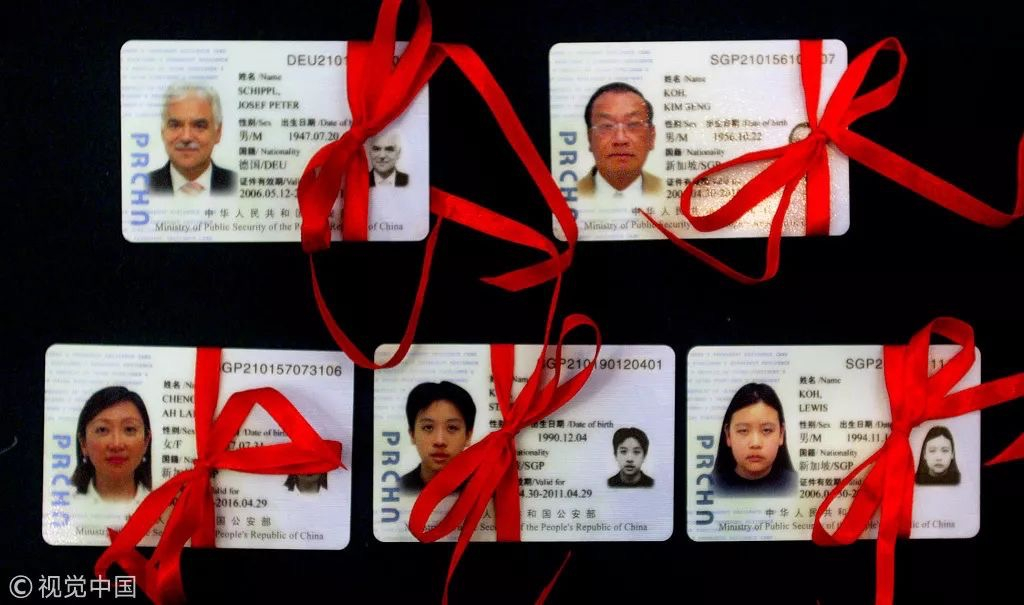04:57

He speaks Mandarin fluently and drinks Chinese oolong tea daily. No wonder American William Brown, a 63-year-old MBA professor at Xiamen University, says he has a Chinese heart.
Having lived in Xiamen on China's southeastern coast for over 30 years, Brown has witnessed the hardships and development of not just the city but the entire country.

William Brown, an American MBA professor at Xiamen University, is pictured with his family in Xiamen City, southeast China. /Photo via Xiamen University's official WeChat account
William Brown, an American MBA professor at Xiamen University, is pictured with his family in Xiamen City, southeast China. /Photo via Xiamen University's official WeChat account
In 1988, Brown sold his company in America and moved to Xiamen with his wife and two young boys.
He became the first foreigner to obtain permanent residence in Fujian Province in 1992, when such a privilege was extremely rare.
Three decades later, as more and more Chinese people go overseas, there is also a growing number of foreigners eagerly seeking to come to China to study, work and even build their lives.
According to data released by China's National Immigration Administration, there were 95.3 million foreigners departing from or entering China in 2018 alone, a year-on-year increase of 11.6 percent.
Moreover, more than 100,000 foreigners entered China via 72-hour and 144-hour visa-free stopovers in the past year – an increase of 23.9 percent year on year.
This would have been unimaginable at the time Brown arrived.

William Brown delivering a speech at Xiamen University, southeast China. /Photo via Xiamen University's official WeChat account.
William Brown delivering a speech at Xiamen University, southeast China. /Photo via Xiamen University's official WeChat account.
And as the numbers rise, questions and concerns raised by the foreigners regarding the procedures required to visit China have also grown.
To find out what foreigners want to know most about China's immigration policies, CGTN collected questions from people in more than 10 countries as well as our worldwide followers on social media.
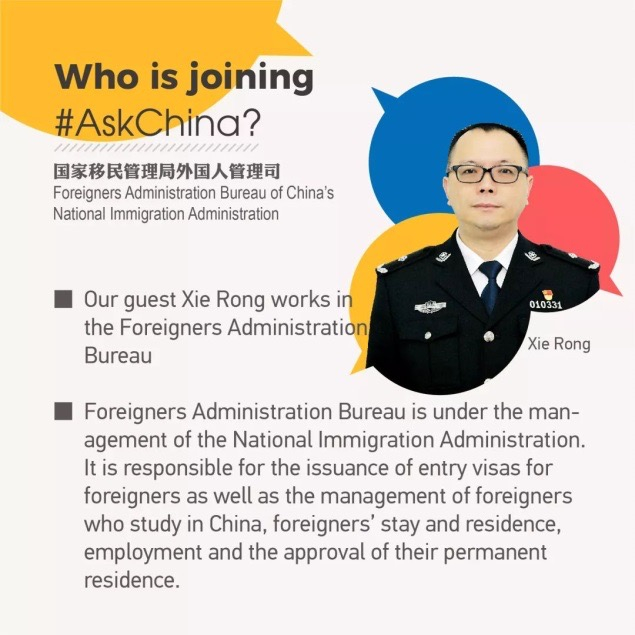
CGTN invited Xie Rong of China's National Immigration Administration to shed some light on the questions. /CGTN Photo
CGTN invited Xie Rong of China's National Immigration Administration to shed some light on the questions. /CGTN Photo
In this new episode of CGTN's "Ask China" series, we invited Xie Rong of the Foreigners Administration Bureau of the National Immigration Administration to shed some light on the questions.
Here are a few selected questions from dozens raised by foreigners:
- German student Hamid: As a European citizen, do I need a visa to study and work in China?
- Spanish retired teacher Montserrat: How can I apply for Chinese visas without going to service agencies?
- Thai student Sarawan: Are there any favorable policies introduced by the Chinese government to attract foreign nationals to work and live in China?
To check out the answers to these questions, you can watch the interview at the top of this article.
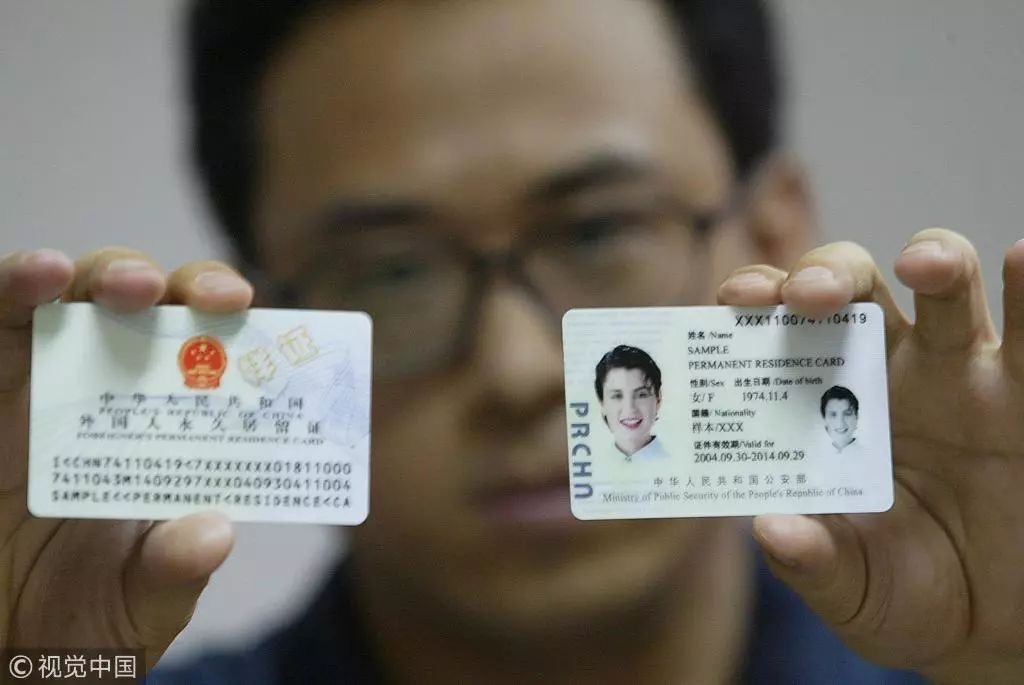
Chinese officers demonstrating the two sides of Chinese permanent residency cards. /VCG Photo
Chinese officers demonstrating the two sides of Chinese permanent residency cards. /VCG Photo
While we were collecting questions from foreigners, we found that many of them showed great interest in getting permanent residence permit in China, which is widely considered as one of the world's hardest-to-get immigration documents.
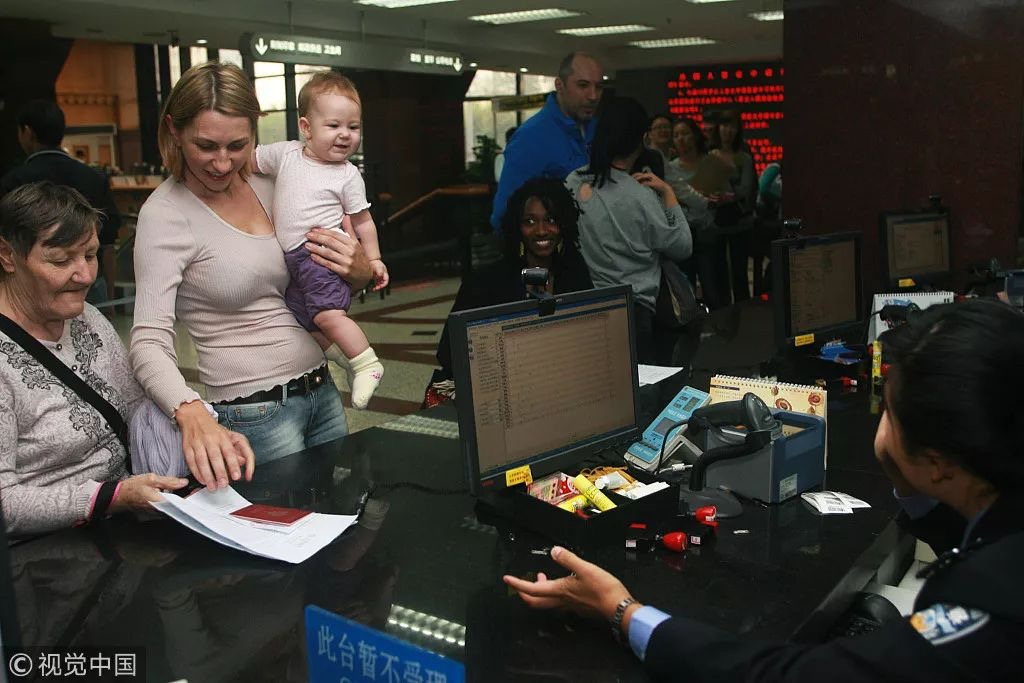
Foreigners register at Beijing's Exit and Entry Administration of the Public Security Bureau. /VCG Photo
Foreigners register at Beijing's Exit and Entry Administration of the Public Security Bureau. /VCG Photo
China introduced the permanent residence system in 2004 that generally applies to four categories of people: top talent, foreign investors, those who have made outstanding contributions, and those who have families in China.
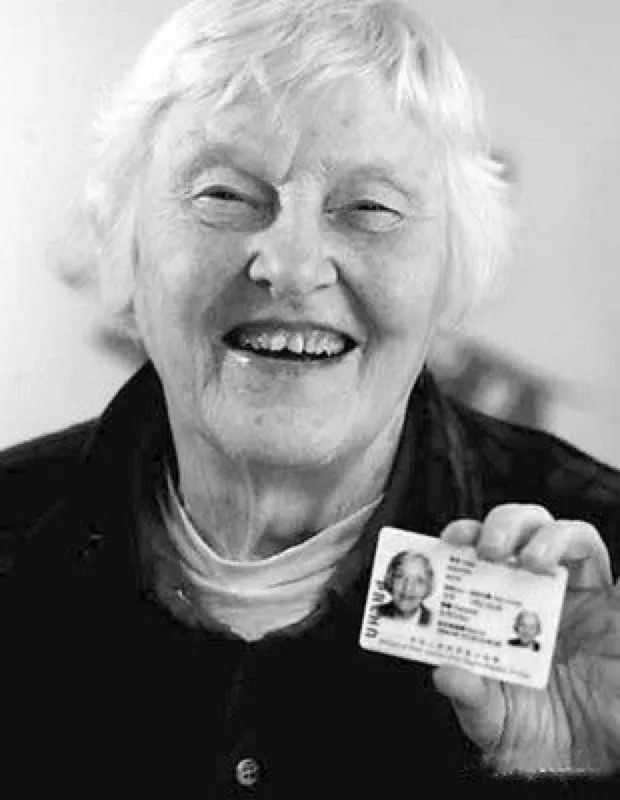
Joan Hinton, a renowned nuclear physicist living in China for more than half a century, was the first holder of a Chinese permanent residency card. /VCG Photo
Joan Hinton, a renowned nuclear physicist living in China for more than half a century, was the first holder of a Chinese permanent residency card. /VCG Photo
Due to its high threshold, only a small number of foreigners have successfully received the Chinese permanent residency card since the system was brought into practice. They include Professor Brown, Nobel laureates Bernard L. Feringa and Kurt Wüthrich, as well as the card's first holder Joan Hinton – a renowned nuclear physicist who lived in China for more than half a century.
In the interview, officer Xie explained, "Foreign nationals holding permanent residence permits are eligible to enjoy the same treatment as Chinese citizens in terms of purchasing houses, applying for driving licenses, enrolling their children in school, traveling and accessing financial services during their residence in China."
As a result, however hard it could be, getting a permanent residence permit has remained at the top of the to-do lists of many expats seeking to build a life in the country.
In June 2017, China launched a revamped version of its permanent residency card, embedding a chip in it that allows foreigners to use it in a way similar to the second-generation ID card is used by Chinese nationals.
For example, while the previous permanent residence permit needed to be used along with the holder's passport, the new card can be used independently as legal proof of identity when dealing with transactions such as buying flight tickets.
In response to whether more conveniences could be expected regarding the process of getting a permanent residency card, officer Xie said, "The National Immigration Administration is adopting a more active, confident, open, flexible and pragmatic approach to reform and improvement of the permanent residence permit system. We will continue to open up more channels for application, to adjust and optimize the application conditions and guarantee the promised treatment of permanent-residence-permit holders, so as to attract more foreign nationals to invest, start businesses, work and study in China."








